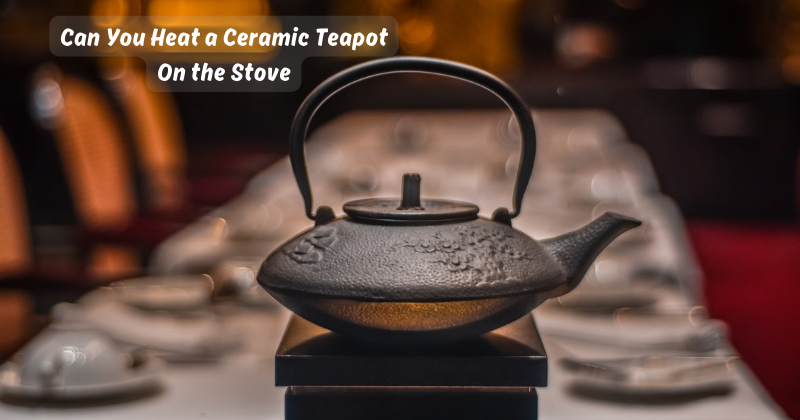Chai tea, also known as masala chai, is a popular drink that originated in India. It steers black tea leaves with spices such as cardamom, cinnamon, ginger, and cloves. Chai tea has gained popularity worldwide for its unique flavor and potential health benefits.
One everyday use of chai tea is to soothe an upset stomach. But is there any truth to this claim? In this article, we will explore chai tea's potential benefits and drawbacks for upset stomachs. Let's examine the properties of chai tea and see if it can genuinely help with digestive issues.
What Causes Upset Stomach?
An upset stomach, or dyspepsia or indigestion, is a common condition affecting anyone at any age. It is characterized by discomfort or pain in the upper abdominal area and may be accompanied by symptoms such as bloating, nausea, and gas.
There are many potential causes of an upset stomach, including overeating, consuming spicy or fatty foods, food allergies or intolerances, stress, and certain medications. In some cases, it can be a symptom of an underlying digestive disorder such as gastroesophageal reflux disease (GERD) or irritable bowel syndrome (IBS). Understanding the root cause of your upset stomach is essential in finding the most effective treatment.
The Properties of Chai Tea
Chai tea is a blend of traditional Indian spices and black tea, and each ingredient has unique properties that may contribute to relieving an upset stomach.
Here are some of the potential beneficial properties of chai tea:
- Black Tea: The black tea used in chai is a natural source of caffeine. Caffeine has been shown to improve digestion by stimulating the production of stomach acid, which aids in breaking down food.
- Ginger: Ginger is a commonly used spice with anti-inflammatory properties that can help soothe an upset stomach. It has been used for centuries in traditional medicine to treat digestive issues such as nausea and vomiting.
- Cardamom: A fragrant spice commonly used in chai tea, cardamom is known for its carminative properties. This means it can help reduce gas and bloating in the digestive tract.
- Cinnamon: Cinnamon has antibacterial properties that may help combat stomach infections that can cause upset stomach. It is also known to have anti-inflammatory and antispasmodic effects, which can provide relief from cramping and discomfort.
- Cloves: Cloves are rich in antioxidants and traditionally used to alleviate digestive issues such as bloating, gas, and nausea.
As you can see, each ingredient in chai tea has potential benefits for digestive health. However, it is essential to note that chai tea properties have yet to be extensively studied.
Is Chai Tea Good For Upset Stomach?
So now you may wonder, is chai tea perfect for an upset stomach? The answer could be more precise. While the ingredients in chai tea have potential digestive benefits, there are also some factors to consider.
Firstly, the caffeine content in black tea can sometimes irritate sensitive stomachs and worsen upset stomach symptoms. Additionally, if you have a food allergy or sensitivity to one of the spices used in chai tea, it can aggravate your symptoms rather than provide relief.
It is also important to note that everyone's body reacts differently to certain foods and beverages. What may work for one person's upset stomach may not necessarily work for another.
The Potential Drawbacks of Chai Tea
While chai tea can relieve upset stomachs, there are also some potential drawbacks.
Here are a few things to keep in mind:
- Caffeine: As mentioned earlier, the caffeine in black tea can irritate sensitive stomachs and worsen symptoms. Consuming chai tea in moderation is essential, especially if you are already experiencing digestive issues.
- Sugar Content: Many commercial versions of chai tea contain added sugars, which can be problematic for those with digestive problems. Excessive sugar consumption can lead to bloating, gas, and discomfort.
- Possible Food Allergies or Sensitivities: If you have a known allergy or sensitivity to any of the spices used in chai tea, it is best to avoid it altogether as it can worsen your symptoms.
- Possible Interactions with Medications: Some ingredients in chai tea may interact with certain medications. It is always best to consult with a healthcare professional before incorporating new beverages into your diet, especially if you take any medications.
Benefits of Chai Tea Beyond Upset Stomach Relief
Despite the potential drawbacks, chai tea still has many benefits beyond just soothing an upset stomach.
- Antioxidants: The spices found in chai tea are rich in antioxidants, which can help protect your body from damage caused by free radicals.
- Improved Digestion: Chai tea may improve digestion due to its caffeine-rich ingredients and anti-inflammatory properties.
- Mood Booster: The aroma and flavor of chai tea can have a calming effect, making it a popular choice for relaxation and stress relief.
- Variety of Flavors: Chai tea has many variations, from traditional Indian recipes to modern twists with added flavors like vanilla or chocolate. This makes it a versatile and enjoyable beverage for those looking to switch up their tea routine.
Tips for Incorporating Chai Tea into Your Diet
If you are interested in trying chai tea as a potential remedy for upset stomach or to enjoy its many benefits, here are some tips to consider:
- Choose Quality Ingredients: Opt for high-quality ingredients to ensure maximum flavor and potential health benefits when making your own chai tea.
- Monitor Caffeine Intake: If you are sensitive to caffeine, consider choosing decaffeinated chai tea or limiting your consumption to avoid discomfort.
- Be Mindful of Added Sugars: As mentioned earlier, added sugars can be problematic for those with digestive issues. Choose unsweetened versions of chai tea or make your own at home using natural sweeteners like honey or maple syrup.
- Listen to Your Body: How your body responds to chai tea. If you experience any discomfort or adverse reactions, avoid it in the future.
- Consult a Healthcare Professional: If you have any concerns or pre-existing health conditions, it is always best to consult a healthcare professional before incorporating chai tea into your diet.
FAQs
Do I have to use all of the spices mentioned in chai tea?
No, you can customize your chai tea recipe based on your preferences and dietary restrictions. However, some key ingredients, such as ginger, cardamom, and cinnamon, may provide additional digestive benefits.
Can I drink chai tea if I have a sensitive stomach?
It is best to consult a healthcare professional if you have a sensitive stomach or any pre-existing digestive issues before incorporating chai tea into your diet.
Is it safe to drink chai tea every day?
As with any food or beverage, moderation is key. Monitoring your caffeine and sugar intake and listening to your body's reactions when consuming chai tea is essential. Consult with a healthcare professional if you have any concerns. Chai tea can be a delicious and potentially beneficial addition to your diet when consumed in moderation and with attention to any potential allergies or sensitivities. Enjoy!
Conclusion
In conclusion, while there is potential for chai tea to provide relief for an upset stomach, it is not a guaranteed remedy. It is essential to consider individual factors such as caffeine sensitivity and food allergies before incorporating them into your diet. However, chai tea still has various benefits, making it a popular and enjoyable beverage choice.
As with any new addition to your diet, it is best to listen to your body and consult a healthcare professional if you have any concerns or pre-existing health conditions. So go ahead and savor the flavorful blend of spices in a warm cup of chai tea, but remember to do so mindfully and in moderation. Cheers!







